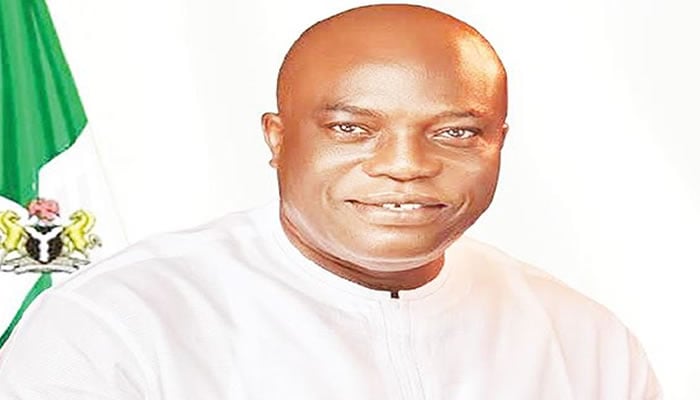Senator Neda Imasuen, Chairman of the Senate Committee on Ethics, Privileges, and Public Petition, reaffirmed the National Assembly’s dedication to enhancing university funding and protecting academic freedom. Speaking at the golden jubilee celebration of the University of Benin’s Faculty of Arts, where he received the Distinguished Legislative Leadership award, Senator Imasuen addressed the persistent challenges plaguing Nigeria’s higher education system. These challenges, including chronic underfunding, inadequate infrastructure, recurring strikes by university unions, and brain drain among lecturers, have hindered the sector’s growth for years. The senator’s presence, although through a representative, underscored the significance of the occasion and highlighted the ongoing dialogue concerning the future of higher education in Nigeria. His commitment to supporting initiatives like the Student Loan Act signifies a proactive approach to addressing these complex issues.
The senator’s representative, Orobosa Omo-Ojo, a former Edo State Commissioner for Transport, emphasized the importance of education beyond mere academic credentials. He stressed the need for graduates who are problem-solvers, ethical leaders, and responsible citizens. This resonates with the broader societal need for individuals equipped not just with knowledge, but with the skills and values necessary to contribute meaningfully to nation-building. Omo-Ojo also detailed Senator Imasuen’s contributions to education in the Edo South senatorial district. These initiatives, encompassing scholarships, coverage of JAMB fees, and vocational training programs for parents, demonstrate a multi-pronged approach to empowering individuals and communities through education and skills development. The senator’s focus on both formal education and vocational skills underscores a holistic approach to human capital development.
Senator Imasuen’s commitment to President Tinubu’s Student Loan Act signals support for a crucial policy aimed at broadening access to higher education for financially disadvantaged students. While the act aims to address financial barriers, acknowledging the ongoing debates surrounding its sustainability and effectiveness is essential. Questions remain regarding its long-term funding model and whether loan schemes alone can resolve the systemic issues entrenched within the sector. It is crucial to view the Student Loan Act as one component within a broader strategy for educational reform, alongside efforts focused on increasing direct funding to universities, improving infrastructure, and addressing the underlying causes of brain drain. A comprehensive approach is needed to transform Nigeria’s higher education landscape.
The senator’s pledge to train 350 youths in boundary security and rebuild the Faculty of Arts Lecture Theatre as part of his constituency projects further demonstrates his commitment to investing in education and community development. These initiatives address both immediate needs and long-term goals, focusing on equipping young people with valuable skills while simultaneously enhancing educational infrastructure. By investing in boundary security training, the senator aims to empower youth and contribute to community safety. The commitment to rebuilding the lecture theatre highlights the importance of providing conducive learning environments for students. These combined efforts exemplify a dedicated approach to fostering both human capital and physical infrastructure development.
Professor Edosa Bright Omoregie, the Vice Chancellor of the University of Benin, represented by Professor Victor Ighineweka, the Deputy Vice Chancellor (Academics), recognized the Faculty of Arts as a significant contributor to Nigeria’s intellectual, cultural, and humanistic growth. The faculty’s alumni, having contributed to the country’s diverse fields, underscore the transformative power of education. Their influence on the academic, artistic, and political landscape reflects the university’s role in shaping national discourse and progress. This recognition emphasizes the enduring legacy of the Faculty of Arts and its continued relevance in a rapidly changing world.
Professor Francis Egbokhare’s keynote lecture on “The Place of Humanity in an AI Era” provided a timely reflection on the evolving relationship between humans and technology. Dispelling fears of artificial intelligence supplanting human potential, Professor Egbokhare highlighted the enduring importance of humanistic values. His argument emphasized that critical global challenges, such as issues of equity, leadership, and purpose, require human-centered solutions. While technology plays a vital role in shaping the future, Professor Egbokhare’s insights underscore the irreplaceable value of human ingenuity, creativity, and ethical considerations in navigating the complexities of the 21st century. This perspective provides a crucial counterpoint to anxieties surrounding technological advancements, emphasizing the continued importance of humanistic inquiry and ethical leadership.














